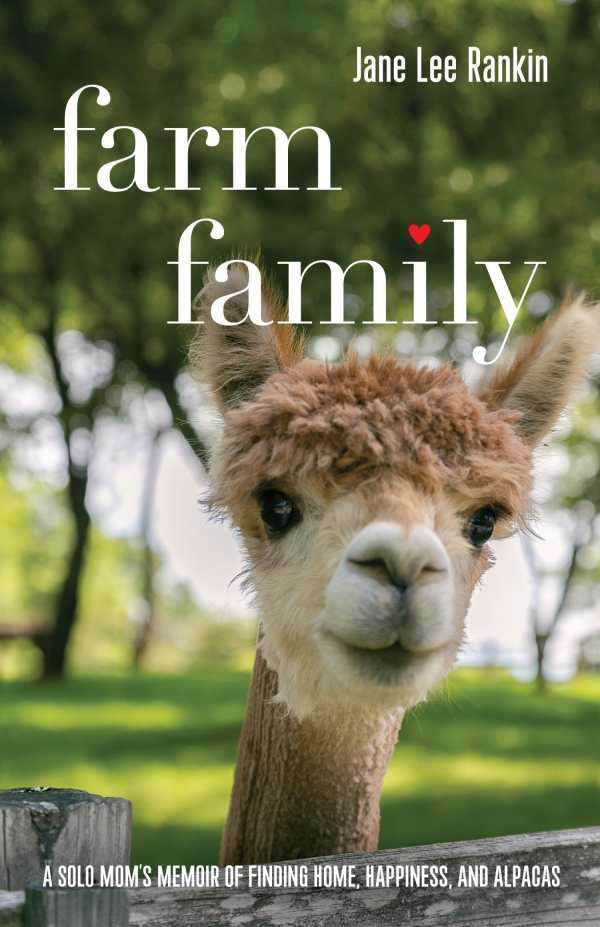Farm Family
A Solo Mom’s Memoir of Finding Home, Happiness, and Alpacas
Jane Lee Rankin’s celebratory memoir is about forging an unlikely new family among farm animals.
An alpaca farm and a new community in which to raise her son are the crucial components of new joy in Jane Lee Rankin’s memoir Farm Family.
Rankin, a single mother, had a contentious but repaired relationship with her own mother before the latter passed away; her father never accepted her choices and remained distant. Her relationship with her lifelong caregiver, Annie, was more supportive, helping to see Rankin through a breast cancer diagnosis and her son’s early years. When Annie died, Rankin’s ties to her hometown dwindled and she bought property in North Carolina. She began to add animals to her family at a steady rate; in time, the farm took on a menagerie of alpacas, donkeys, goats, and horses in addition to pets. With them, she contended with animal attacks, bad weather, and illnesses, turning the farm into a long-thriving business.
Throughout the book, each of Rankin’s family members—animals included!—is rendered in vibrant, loving terms, via anecdotes that flesh out their individual personalities. And—in conversation with veterinarians and local business owners—Rankin also vivifies the wider community around her farm. Still, it often seems as though the farm animals are the book’s true stars.
However, the book is not only concerned with the farm’s origins and growth; it also focuses on the personal wounds that farming helped Rankin to heal. In service of this, its story begins and ends with Thanksgiving scenes that are marked by gladness and grief. In the opening scene, Rankin makes holiday preparations with Annie; in the closing scene, Rankin and her son continue the holiday traditions that Annie started. And sprinkled throughout the book are less festive examples of Thanksgiving celebrations, as with those during which her son was not welcome at her father’s home. Such annual rhythms result in a structured progression—a keen reflection of Rankin’s own life patterns.
Also central to the book, and beyond its farm setting, is the intimate question of how Rankin can love herself in her mother’s absence and in the face of her father’s rejection. She works toward forgiveness among quotidian details about subjects like real estate and alpacas that temper the book’s otherwise feelings-forward approach. Some such inclusions can be tedious, though, as with the book’s medical details, which are distractions from its otherwise steady progression. Still, there’s a celebratory ending to this loving memoir about forging an unlikely new family among farm animals.
Reviewed by
Mari Carlson
Disclosure: This article is not an endorsement, but a review. The publisher of this book provided free copies of the book and paid a small fee to have their book reviewed by a professional reviewer. Foreword Reviews and Clarion Reviews make no guarantee that the publisher will receive a positive review. Foreword Magazine, Inc. is disclosing this in accordance with the Federal Trade Commission’s 16 CFR, Part 255.

